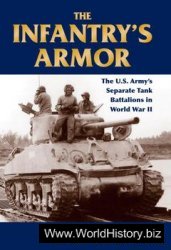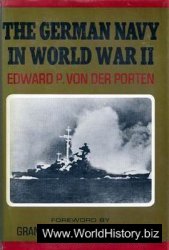After the 1997 election, Preston Manning resumed his campaign to unite the right, with the primary goal of breaking into Ontario. Newspaper magnate Conrad Black helped by buying half the country’s major dailies for his Hollinger chain and launching the National Post as an organ of conservative views. Tory leader Jean Charest left federal for provincial politics in a bid to unite Quebec federalists and defeat Lucien Bouchard’s Parti Quebecois. All that his former party could find for a leader was Joe Clark. Still, many conservatives remained suspicious of Manning’s regional bias and moral fundamentalism.
Meanwhile, the Chretien government tried to live quietly with its narrow majority. By 1998, a regular surplus had replaced the deficit. Chretien promised to split it between social reinvestment and debt repayment. Efforts at constitutional change were shelved, but a Canadian Social Union agreement with the provinces was offered as a renewed co-operative federalism. A Cabinet newcomer, Stephane Dion, devised the Clarity Act to satisfy the Supreme Court ruling that Quebec could force the rest of Canada to negotiate over secession, but only after a clear majority of Quebecers had voted on a clear question. Sovereignists reacted with fury, but as Chretien and Dion had foreseen, Quebecers preferred clarity, and many now seemed bored by the sovereignty issue.
By 2000, the longest boom in recent North American memory showed signs of weakness. As the Prime Minister reminded audiences, Canada (narrowly) ranked first in the United Nations’ Social Development Index. Ottawa had money to resuscitate tattered health services and restore unemployment benefits to Atlantic Canadians. By 2000, only Newfoundland had a Liberal government. In 1998, Charest had failed to defeat Bouchard. In June 2000, at a leadership convention, Reform, renamed the Alliance, denied Manning a chance to take his party into its promised land. It chose Stockwell Day, a brash and engaging 43-year-old former Pentecostal preacher who had served as Alberta’s provincial treasurer. Once in Parliament, Day demanded a general election. Chretien gave him his wish, calling an election for November 27,2000. Each man felt buoyed by the national outpouring of admiration for Pierre Elliott Trudeau, who had died on September 28. Each man believed himself the heir of Trudeau’s leadership style.
As in 1997, critics and the media denounced Chretien for calling a costly election so soon after his previous victory—this time, only forty months. Even Liberals worried about Chretien’s age, costly favours to his constituents, and hints of scandal in government job-creation grants. Then, as ChrMen expected, they looked at the OpposiTion. Alliance officials undermined Day’s bland campaign by admitting plans to privatize much of Canada’s heath system and to allow referenda to determine sensitive policies such as access to abortion. The Liberals left the West to the Alliance and focused on holding Ontario and winning back support in Quebec and the Maritimes. Despite an early slump, Liberal support revived in the last days of the campaign, ndp and Tory votes switched to Chretien to bar Stockwell Day from power. Even more voters stayed home than in 1997. The Liberals won 172 seats and the Alliance 66, only two of them in Ontario. The three smaller parties all suffered: the Bloc fell to 38 seats, the ndp and Progressive Conservatives to 13 and 12, a minimum for official party status. Jean Chretien had joined Macdonald, Laurier, and Mackenzie King as one of only four Canadian prime ministers to win three consecutive majorities. The “Little Guy from Shawini-gan” had again out-smarted Canada’s opinion leaders and enraged those who saw a divided opposition as the key to permanent Liberal power. Alliance backbenchers turned out their callow leader and found his replacement in an Ontario-born, Calgary-based Conservative ideologue, Stephen Harper.
On September 11,2001, al-Qaeda terrorists used hijacked American airliners to demolish New York’s World Trade Center and one side of the U. S. Defense Department’s headquarters in Washington. President George W. Bush declared war on terrorism and invoked the NATO alliance to assault Afghanistan, the defiant home of the al-Qaeda network. Chretien invited John Manley to manage Canada’s response. NATO membership brought Canada into Bush’s war. Canadians soon learned who called the shots when Americans were frightened. On September 12, the U. S. border slammed shut, halting 80 per cent of Canada’s foreign trade, jeopardizing the livelihood of millions of Canadians. Despite grumbling, Manley’s efforts allowed Canada’s economy to recover. By the time Americans began investigating their intelligence failures, earlier charges that Canada was overrun with terrorist cells and dangerous refugees had faded, though not before the rcmp had helped the ciA transfer some Muslim Canadians to Middle Eastern cells and torture chambers. The Chretien government spent billions of dollars in programs to assure Americans that their northern frontier was as secure as technology and intelligence operatives could make it. Exploiting “interoperability” with U. S. forces, Canada sent warships to the Arabian Sea. A new Joint Task Force worked with U. S. SpeciaJ Forces and rebeJ warlords to establish a more congenial government in Kabul. A Canadian battalion spent six months guarding the U. S. base at Kandahar. When their time was up (and after four deaths from “friendly fire”) Canada’s shrunken army had no troops to replace them.
Canadians have learned to live with natural forces more powerful than themselves. Typical was the January 1998 Ice Storm— several days of freezing rain that coated trees and transmission lines with ice until they toppled from the weight. More than a million homes were left without electricity and heat. Troops, hydro crews, and relief workers rushed to help as much of Canada, from eastern Ontario to New Brunswick, shivered and waited for power.

Canada’s “Ready, aye, ready” response did not shelter it from U. S. protectionism. Eight months into their war on terrorism, lobbyists persuaded Congress to close down Canada’s softwood lumber industry. Congress also promised huge new subsidies to American producers of farm commodities that Canada had been exporting to the United States. President Bush was reluctant to spend his influence on persuading Congress to appease an insufficiently tractable neighbour. Urged by politicians and editors to be ready whenever embattled Americans called, Canadians instead began to be troubled by a colonial dependence on U. S. political priorities.
Having overthrown Afghanistan’s Islamic regime. President Bush turned on Iraq’s Saddam Hussein. His father had left the Iraqi dictator in power in 1991 rather than assume the burden of running his bitterly divided country. The younger Bush insisted that Saddam had backed al-Qaeda and developed weapons of mass destruction (wmd) for its terrorists. The United Nations was unconvinced: Saddam was one of the secular Muslims al-Qaeda regularly denounced; U. N. weapons inspectors politely insisted that American evidence of wmd production was bogus. Denied U. N. backing. President Bush created his own “Coalition of the Willing” and launched an invasion of Iraq in March 2003. Canada and most Canadians were among the unwilling. Although White House relations with Ottawa turned frosty, Canada’s warships in the Persian Gulf cooperated with the U. S.-led invasion forces, and Canada met U. N. and NATO commitments by sending a battalion-sized force to protect the Hamid Karzai government in Kabul.




 World History
World History









